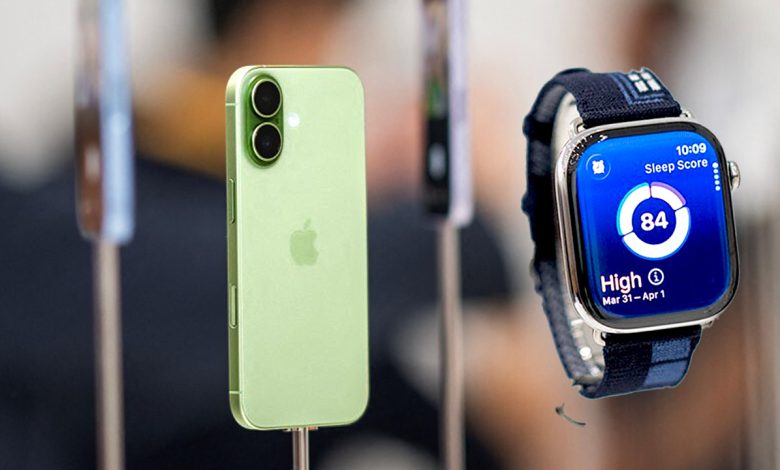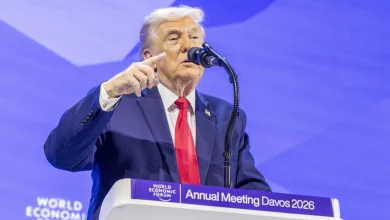
Apple unveiled its iPhone 17 lineup on Tuesday, featuring its thinnest smartphone ever, as the tech giant works to prove it can keep pace in the generative AI race.
The Silicon Valley powerhouse held its annual iPhone release event amid mounting pressures: the White House is pushing the company to reduce its dependence on Chinese manufacturing, while investors question whether Apple is truly ready for the AI age.
Adding to these challenges, the company faces headwinds from President Donald Trump’s high tariff policies. Apple shares have dropped more than three percent since the Republican took office in January.
Against this backdrop, Apple is betting on a product that it hopes will spark a super-cycle of iPhone purchases and reverse the trend of customers holding onto their devices longer before upgrading.
Apple iPhone 17 models are displayed during Apple’s “Awe-Dropping” event at the Steve Jobs Theater on the Apple Park campus in Cupertino, California, on September 9, 2025. (Photo by Nic Coury / AFP)
“The event shows Apple sidestepping the heart of the AI arms race while positioning itself as a long-term innovator on the AI hardware front, with silicon and device-level integration,” said Emarketer analyst Gadjo Sevilla.
To reinvigorate its brand, Apple introduced the iPhone 17 Air, which CEO Tim Cook called “a total game changer.”
At just 5.6mm thick (less than a quarter inch), the $999 device features Apple’s new A19 Pro processor — its most powerful iPhone chip to date — and promises all-day battery life with up to 40 hours of video playback.
The Air joins Apple’s more standard lineup, including the premium iPhone Pro 17, the company’s most expensive and highest-performing model.
While all new devices incorporate generative AI technology, Apple made no major announcements about expanding its AI capabilities beyond updates to existing features in its “Apple Intelligence” suite.
The company’s AI push has struggled to gain traction since it launched “Apple Intelligence” late last year. Users have been particularly disappointed with improvements to Siri, which remains surprisingly basic despite years of promises.
Apple reportedly plans to integrate AI into online search next year and overhaul Siri, though the company hasn’t confirmed these reports.
The tech giant is also said to be partnering with Google to tap into its search and AI expertise.
“To truly differentiate and smoke the competition, Apple will have to crack AI as a new contextual user-interface” on its devices, Forrester analyst Thomas Husson said in a note.
“Executing such an ambitious AI strategy will take time. It won’t happen at best until next year, if not for the iPhone’s 20th anniversary” in 2027, he added.










